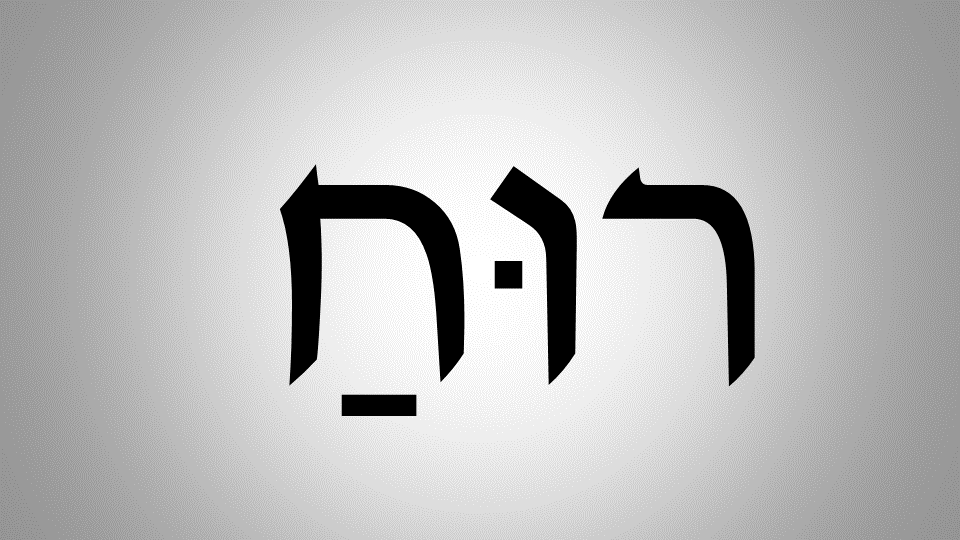
What was Yeshua like? And how can we become like Him? One thing we know is that both Yeshua and His forefather David delighted themselves in keeping Yahweh’s Torah, including His precepts (or principles).
Tehillim (Psalms) 119:92-93
92 Unless Your Torah had been my delight,
I would then have perished in my affliction.
93 I will never forget Your precepts,
For by them You have given me life.
Yahweh’s precepts are perhaps the most important part of the Torah, because while the letter of the Torah can change depending on whether we are under the order of Melchizedek or the order of Levi, the precepts (i.e., the principles) remain the same.
King David loved Yahweh’s commandments, but he was also able to walk at liberty, because he sought Yahweh’s precepts.
Tehillim (Psalms) 119:44-45
44 So shall I keep Your Torah continually, Forever and ever.
45 And I will walk at liberty, For I seek Your precepts.
As we saw in our studies on the Tabernacle of David (in Nazarene Scripture Studies, Volume 4), King David did many things that were forbidden to him under the letter of the Levitical Torah. For example, although King David was a Jew (and not a Levite), he served as a priest, offered sacrifices, and wore a linen ephod.
Shemuel Bet (2 Samuel) 6:13-14
13 And so it was, when those bearing the ark of Yahweh had gone six paces, that he sacrificed oxen and fatted sheep.
14 Then David danced before Yahweh with all his might; and David was wearing a linen ephod.
The reason Yahweh allowed King David to break the letter of the Levitical Torah was because King David sought Yahweh’s precepts, and walked according to the Spirit. Likewise, when we obey Yahweh’s precepts and walk after His Spirit, we also can walk according to the perfect law of liberty—and we will be blessed in what we do.
Yaakov (James) 1:25
25 But he who looks into the perfect law of liberty and continues in it, and is not a forgetful hearer but a doer of the work, this one will be blessed in what he does.
We should emphasize that the perfect law of liberty is not a license to break the commandments per se. Rather, the perfect law of liberty is a license to further Yeshua’s kingdom, even if it means that the Spirit tells us to do something other than the letter of the command. However, this must come from the Spirit, or we will not be in Elohim’s favor, and we will not be blessed in what we do—and the only way to know this is to hear and obey the voice of the Spirit.
Teaching someone to hear and obey the voice of the Spirit is like teaching someone how to paint, or how to fish. You can teach them all the necessary basics, but in the end, they must practice.
So what are the necessary basics? Let us take a closer look at Isaiah 11:3.
Breathing in the Fear
Something essential is lost in most English translations of Isaiah 11:3. Most English translations of Isaiah 11:3 tell us that Yeshua “delighted in fearing” Yahweh. This is undoubtedly true, but it is not a good translation. Rather, the Hebrew tells us that Yeshua “breathed in the fear” of Yahweh. Below is the New King James with Yahweh’s name corrected.
| Yeshayahu (Isaiah) 11:3 3 His delight is in the fear of Yahweh, And He shall not judge by the sight of His eyes, Nor decide by the hearing of His ears; |
(3) וַהֲרִיחוֹ בְּיִרְאַת יְהוָה | וְלֹא לְמַרְאֵה עֵינָיו יִשְׁפּוֹט וְלֹא לְמִשְׁמַע אָזְנָיו יוֹכִיחַ |
The first three words, “v’harikhu b’yirat Yahweh” (וַהֲרִיחוֹ בְּיִרְאַת יְהוָה) tell us that Yeshua “breathed in the fear” of Yahweh.
The first word is “v’harikhu” (וַהֲרִיחוֹ). The root word is Strong’s Old Testament OT:7306, ruach (spirit, or breath), and it implies breathing (or perhaps smelling) as a way of perceiving the world.
OT:7306 ruwach (roo’-akh); a primitive root; properly, to blow, i.e. breathe; only (literally) to smell or (by implication, perceive (figuratively, to anticipate, enjoy):
KJV – accept, smell, touch, make of quick understanding.
It is difficult to explain the concept of the Spirit to western audiences. In the Judeo-Christian West, we oftentimes try to grasp (or perceive) the world through our intellect. However, this never works because the intellect is very limited.
As we show in, “Satan Attacks us Through our Minds” in Nazarene Scripture Studies, Volume 4, Satan quite literally attacks us through our thoughts. His goal is to get us to think apart from our breathing in the Spirit (and this is more common than not in the West).
In the Judeo-Christian West, it is sometimes thought that thinking leads to wisdom, but that is not true. Rather, thinking and wisdom are two separate things.
Thinking can lead to great knowledge, and knowledge can be helpful in making wise choices. However, wisdom itself is not a product of thinking. Wisdom is obtained by focusing on Yahweh, breathing, and hearing in the Spirit.
For one example, during patient diagnosis, a classical Chinese doctor will “smell” (i.e., observe) his patient. He is not sniffing the air for an odor, and he is not thinking. Rather, he is observing, and breathing, and listening, to see what occurs to him.
Notice, then, that Yeshua “breathes in the fear of Yahweh”, and that the fear of Yahweh is what leads to wisdom.
Mishle (Proverbs) 9:10
10 “The fear of Yahweh is the beginning of wisdom, And the knowledge of the Set-apart One is understanding.”
The name Yahweh may refer to the sounds made by inhalation and exhalation. We breathe in, “Yah…”, and we breath out, “Huweh…”. Whether or not this is true, Yahweh Himself controls our every breath. Therefore, how much wisdom could be gained by breathing in the fear of Yahweh, and listening for the voice of the Spirit?